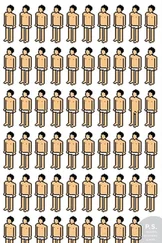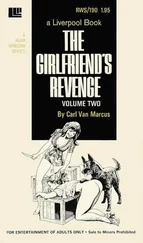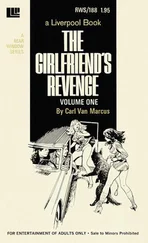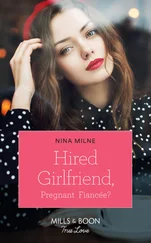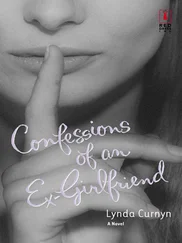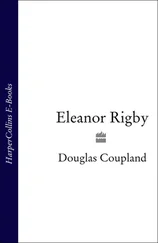In 1989, Hamilton married Cleo, a hiker he met while triangulating land up north near Cassiar. They moved into a small town house near Lonsdale Quay and became ultra-domestic, hosting theme dinner parties ("Provence!"), allowing themselves to pudge out a few pounds ("Dove Bars … dare we?"), and spending their weekends wallpapering ("Love to play baseball but the den molding just arrived today."). Hamilton seemed to have settled down and lost much of his sarcastic edge. He left my radar for a while, even though he lived nearby.
In 1991, Wendy became a specialist in emergency medicine. Also, her mother died of liver cancer that year, so Wendy returned home to the old neighborhood to live with and take care of her father, Ivor, a trollish grump with never a kind word for his daughter or anybody else. Wendy was occupied, but her life really wasn't much of a life. I know she'd wanted to fall in love during med school, but it never happened, and I know she was unhappy about this.
This was also the year that Pam began vanishing from magazines, until she finally went completely AWOL at year's end, nary a lipstick-smudged postcard to any of us. Hurt feelings, yes, but we knew there had to be a reason. Hamilton, in a less generous mood, said, "She's in rehab. Don't glamorize it. Serves the cow right."
"In what way does it serve her right, Ham?" I asked. We were in Hamilton and Cleo's nest at the bottom of Lonsdale: matching pine furniture, wacky animal fridge magnets, and white wine. Cleo positively glowed every time Ham took a swipe at Pammie.
"In what way?" I asked again. He didn't know in what way. He harrumphed and said he had to make a phone call. "Aren't / Mr. Pissy tonight." Cleo looked miffed.
In mid-1992,, Pam returned home to her folks' place—shaky, fearful, thin, and eerily gorgeous. The modeling lifestyle had wiped her out.We were sitting on her parent's front patio, "You know, it was fun, Richard. I grant you that. But it's over now. There's only a small fraction of 'me' left. I used to think there was an infinite supply of 'me.' Wrong-o. I have to be calm now. My small seed needs to grow and become a whole person again. I blew it all—a whole decade raking in dough and not one effing penny."
"Where'd it go?"Iasked.
"Clothes. Dinners. Drugs. More drugs. Bad investments—a mall in Oklahoma that never got built; a retirement community in Oregon that bankrupted." She was spitting out the words. "Shit. At least I'm allowed to smoke." The trees way above us rustled. A crow cawed. "And it's not even the drugs I miss, Richard. I miss the action. I miss feeling like queen of the roulette table. The black cars. Shallow shit, but I miss it. I miss feeling fabulous." A big silence, then: "Lois lets me baby-sit Megan sometimes. She's a fun kid. And gorgeous. She reminds me of Karen."
"Thanks."
"When I first saw Megan as a baby I thought she might as well go she-male and become your twin. By the way, my dear, you look like crap."
"Thanks again Pam." I was making impatient gestures—I had to go pick up Megan from ice skating.
"Richard, you're not leaving—not now, are you? Is it because I pointed out your boozy skin condition?"
"I have to, Pam, I…" Pam's composure wilted. She was on the cusp of tears. I sat next to her and asked what was wrong. She sniffled and stared into her two clasped hands.
"It's just that I'm … I'm … "
"What, Pam? What?"
A whisper: "Lonely."
"I know. Me, too."
I held her as she sniffled. "How's Hamilton? You see him much? Is he happy?"
"I think so.""Oh, pooh." She was still wearing the pubic-hair locket. I asked her to come along with me to pick up Megan and she did.
As fate would have it, Pam shortly ran into Hamilton and Cleo at a record store in Park Royal; they clicked instantly and they left the shop together, forgetting Cleo entirely. In those first few moments poor Cleo saw Pam and Hamilton together she knew she was out of the picture. Cleo had never seen that expression on Hamilton's face before: incredulous, worshipful, witty, lustful, and adoring—all of this love laser-beamed straight at Pam.
Hamilton's marriage didn't just wobble, it crashed like a dynamited casino. In six months it was legally over, too: Cleo got the townhouse; Hamilton boomeranged into his parents' rent-free house, just a mere three-minute stroll to Pam's. At dinner at my parents' one night I saw the two of them moseying down Rabbit Lane. Every three steps a kiss. Every five steps a caress. Hamilton in love.
It was great fun to have Pam among us again, with her tattletales of sex, drugs, and cannibalism. Her reputation in the fashion industry was shot, but this didn't bother her at all. "Much better for me to be here in Deadsville with chums. All very matey, isn't it?" I asked her if she had a plan yet. She said she was going to start doing TV and film makeup for some of the many U.S. studios shooting in their Vancouver branch plants. It turned out to be the best idea any of us ever had.
And what of Karen? Neither alive nor dead after all these years, ever dimming from the world's mind—rasping, blinded, and pretzeled in a wheelchair, a chenille half-shirt covering the outer, exposed part of her body. She moves her head, her eyes flicker, and for three seconds she sees the sky and the clouds—she is briefly among the living, but no one is there to witness. She returns to the dark side of the Moon. We still don't know what she saw that December night, nor may we ever.
By the early 1990s, Karen's awakening had become a billion-to-one shot, but it was still a shot. No, Karen didn't "contribute" anything to society, but how many people really do? Perhaps she did contribute: She provided a platform on which people could hope. She provided the idea that some frail essence from a now long-vanished era still existed, that the brutality and extremes of the modern world were not the way the world ought to be—a world of gentle Pacific rains, down-filled jackets, bitter red wine in goatskins, and naive charms.
After four years of drifting, Linus returned in late 1992.. In that time he'd become more remote than ever. "Reading his facial expressions is an exercise in Kremlinology," Hamilton said. "Direct inquiry's no help: Gee, Linus, you're so remote these days—gee, what's the reason?" Discussion was awkward indeed, and in the end it was simply avoided. His years away were treated as though he'd popped out to get a pack of cigarettes and returned a few minutes later.
Wendy met Linus for dinner a week after his low-key return. Afterward, she told me Linus had "gone inside himself, and hasn't quite emerged yet. He talked about sand dunes, ice, chocolate bars, and hitchhiking—the sorts of things that would be a big deal if you were a hobo. Chalk marks and stuff."
I was envious of Linus's venture into nothingdom, but also ticked off that he hadn't had a revelation in all of his wanderings. I still lived, as did Hamilton, with the belief that meaning could pop into my life at any moment. I was getting—we were getting—no younger, yet for some reason not particularly wiser.
Linus's parents had moved to the waterfront on Bellevue two years earlier—no spare bedroom. A homesick Linus rented a bungalow four houses down from his old house on Moyne Drive, paying the rent with earnings as a freelance electrical contractor. Generators were his specialty. It seemed an anticlimactic sequel to his romantic solo wanderings.
Wendy, eager for any excuse to not have to be around her aging churlish feed-me-my-gruel father, visited Linus every night after her shift at Lions Gate Emergency. One night at a Halloween party in North Van, Wendy curled herself into Linus's lap and smiled love's smile. "Good for them!" we all said. Wendy began spending less time at the hospital; she resumed kibitzing about with our old crowd.
Читать дальше

